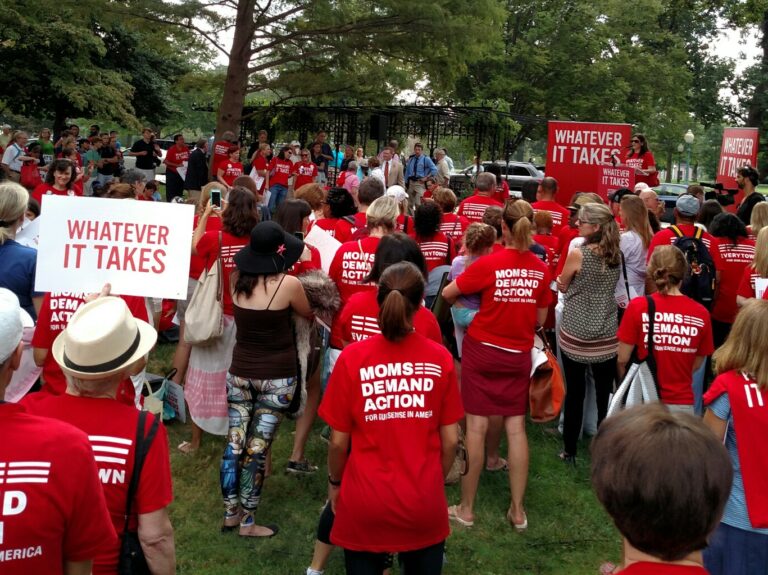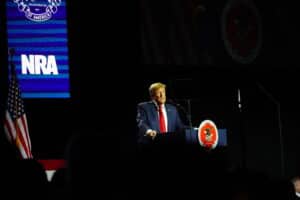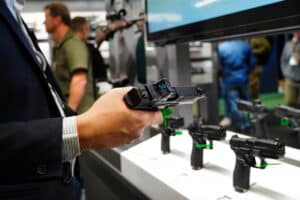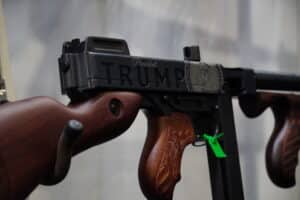If you’ve been following gun politics for any length of time, you’ve inevitably come across the term “loophole” used in association with any number of gun control proposals.
The urgency with which politicians and activists call for bills to close “the gun-show loophole” or “the Charleston loophole” is predicated on the idea that a given practice or behavior with firearms could only be legal due to some oversight by legislators. It implies an inadequacy within a given law, allowing unsavory individuals to obtain guns when they wouldn’t otherwise be able to.
But many of the so-called loopholes decried as oversights needing to be remedied were in fact deliberately left legal, often for practical reasons.
Take for instance the infamous “gun-show loophole” claim. This has perhaps been the most widely touted loophole supposedly in need of closing, and it is often coupled with calls for universal background checks. In an address earlier this year where he announced a series of executive orders related to gun control, President Biden made a statement that captured the essence of the misdirection involved in discussions of this so-called loophole.
“Most people don’t know, you walk into a store and you buy a gun, you have a background check. But you go to a gun show, you can buy whatever you want and no background check,” he said.
This is simply not true. You cannot “buy whatever you want” at a gun show with no background check. Firearms transactions at gun shows are subject to the same federal laws that govern such transactions in any other location. That is to say that a purchase from a licensed dealer at a gun show requires a check run through the FBI’s National Instant Criminal Background Check System (NICS), while transactions between two unlicensed private individuals may be conducted without a check so long as the seller has no reason to believe the purchaser is prohibited from owning a firearm.
This can vary from state to state, as some states require private sales to be conducted with NICS checks, but the federal baseline remains the same throughout the country. Reasonable minds can differ on the desirability of such a scheme, but attempting to conflate an intentional provision in federal regulation with a so-called loophole centered around gun shows is political sleight of hand.
Likewise, the “Charleston loophole” is another common refrain from supporters of gun control that refers to a perceived oversight in the law. Under federal law, a gun sale can proceed after three business days if a NICS check has not yet been returned with an affirmative denial. The so-called loophole gets its name from Dylann Roof— the murderer and prohibited possessor in Charleston, South Carolina— who purportedly obtained his gun under this rule.
Proponents of “closing” the so-called Charleston loophole claim that had Roof been forced to wait for the results of his background check before completing his purchase, his pending charges for drug possession would have prevented him from ever possessing a firearm.
The unlawful use or possession of a controlled substance is indeed a disqualifying offense for gun ownership, but what this claim fails to account for is the fact that it was bureaucratic incompetence that allowed Roof to purchase a gun, not the three-day requirement under federal law. An FBI investigator contacted the wrong locality for details about his pending charge but was unable to find his disqualifying record due to the mistake.
Additionally, a mechanism has always existed to recover guns sold to prohibited possessors before their background checks clear. In those cases, the FBI can notify the ATF about the sale and they can dispatch agents to retrieve the gun.
The three-day provision was intentionally included in federal law to protect the Second Amendment rights of individuals seeking to purchase a gun from being delayed due to intentional malfeasance or bureaucratic inefficiency. The utility of such a provision can be seen in past reporting done by The Reload, where gatekeepers of the right to keep and bear arms have been sued for delayed processes.
These are just two of the most commonly espoused gun policy “loopholes”, but gun-control proponents have referred to numerous intentional provisions as such. While the wisdom of these provisions within the law can be debated by people in good faith, conflating them with mistaken oversights in the law simply clouds substantive discussions at best, and is deliberately misleading at worst.






